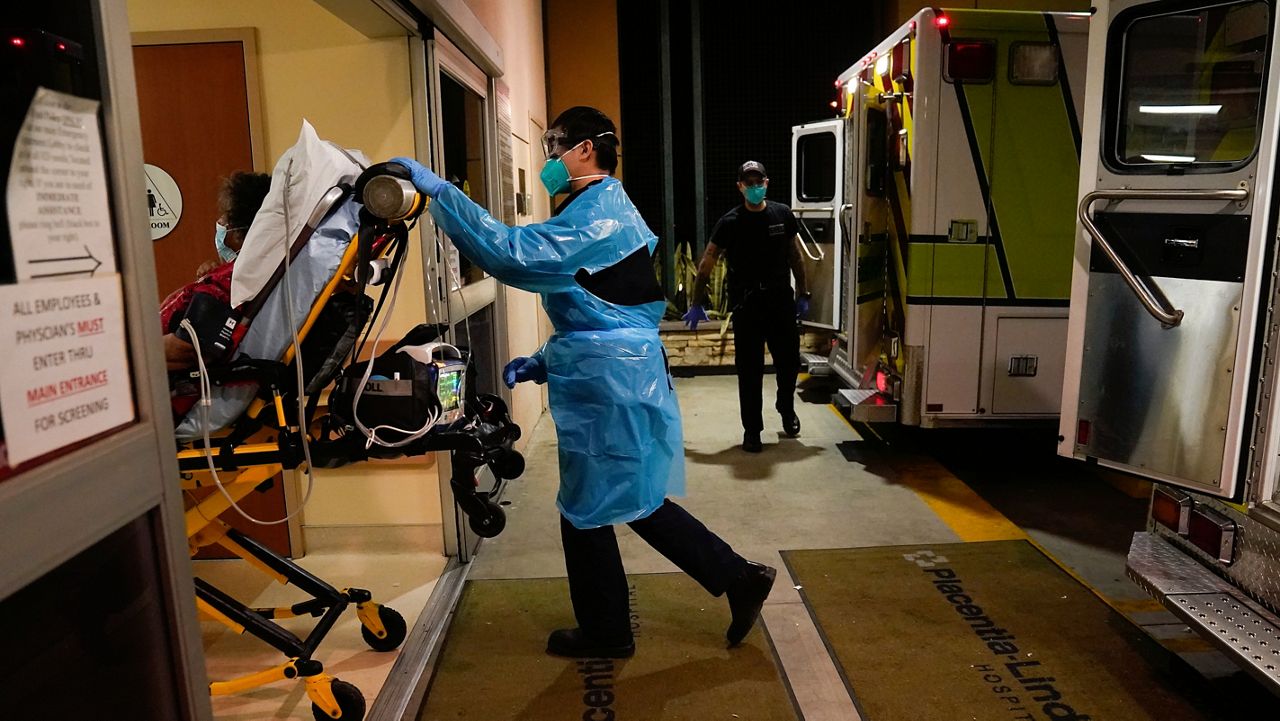The Biden administration on Tuesday announced a new, whole-of-government effort to help patients experiencing long COVID-19 and to prevent others from suffering the same fate.
The new plan aims to “advance our nation’s understanding of Long COVID and its associated conditions, promote high-quality care for patients, and help individuals access supportive services – especially for those from communities disproportionately affected by the pandemic,” the White House said.
According to the U.S. Centers for Disease Control and Prevention, while many individuals who contract the SARS-CoV-2 virus recover within weeks, those with long COVID experience new, lingering or worsening symptoms of the virus four or more weeks after being first infected. Even individuals who did not experience severe COVID can develop symptoms potentially months after infection.
COVID long-haulers, whose symptoms can persist for weeks or even months, experience tiredness, fatigue, dizziness, headache, heart palpitations, chest pain, joint pain, muscle pain and more. Many of the symptoms “can worsen with physical or mental activity,” per the CDC, and can impair one or more body systems like the lungs, heart, kidneys or brain.
Long COVID, in some cases, can be considered a physical or mental impairment under the Americans with Disabilities Act, in the event that it “substantially limit(s) one or more major life activities.”
Biden’s memorandum directs the Department of Health and Human Services to “coordinate a new effort across the federal government” that will, in part, develop an action plan to address long COVID cases nationwide. HHS will also publish a report detailing the services available to individuals suffering from the chronic condition and those who lost a loved one to COVID-19.
"Long COVID is real, and there is still so much we don't know about it," HHS secretary Xavier Becerra said at a Tuesday afternoon press briefing. "Millions of Americans may be struggling with lingering health effects, ranging from things that are easier to notice like trouble breathing, or irregular heartbeats, to less apparent but potentially serious conditions related to the brain or mental health."
The interagency effort will, in part, "work to advance our understanding of long COVID and to accelerate efforts to prevent, detect and treat it in real time," Becerra added.
The other actions announced Tuesday fall under three primary objectives: to deliver high-quality care for those suffering from long COVID, to make additional support services available for individuals suffering from long COVID and related conditions and to increase research initiatives on the issue.
Starting in 2023, the federal government will allocate $20 million to improve how health care facilities treat those with long COVID and to invest in new and emerging treatments for the condition. Should Congress approve additional funding, Becerra added Tuesday, the administration will launch "new centers of excellence in communities across the country to provide high quality care to individuals experiencing long COVID, and to get best practices out there to physicians across the country."
"We're determined as a nation, as the president has said, to not leave anyone behind," Becerra continued. "And that includes our loved ones suffering from long COVID and related conditions. We see you, we're focused on you and we're committed to advancing our nation's capacity to understand and treat your conditions."
The administration also plans to bolster health insurance coverage for those who require long term care, primarily for those using Medicare or Medicaid. Biden ordered Medicare to expand its coverage for pulmonary rehabilitation services for those suffering from long COVID starting this year, and the White House will “continue to assess opportunities to enhance access to care for Long COVID and its associated symptoms through Medicare, Medicaid, insurance marketplace coverage, and other options.”
The plan also includes a renewed focus on long COVID as a potential cause of disability, aiming both to educate the public on the issue and to help individuals understand if they potentially qualify for ADA services after suffering from long COVID.
For those who do qualify for such services, the administration is adding multilingual access and support services for individuals who call into Medicare offices, the CDC-INFO call center and the Disability Information and Access Line. The Biden administration will also “continue to support legal assistance related to Long COVID to older adults and people with disabilities.”
The final prong of the new federal plan is to support research on how to best treat, prevent and categorize long COVID, as much remains unknown about the condition.
For example, estimates vary widely on how many individuals in the United States might suffer from long COVID. The American Academy of Physical Medicine and Rehabilitation, which has long called for a national plan to treat what it calls “post-acute sequelae of SARS-CoV-2 infection,” or long COVID, estimates 30% of individuals who contracted the virus and survived later developed long COVID, equal to roughly 23.7 million cases nationwide.
A separate study, published in the medical journal PLOS Medicine in September 2021, found that 57% of studied patients had at least one symptom of long COVID around five months after being first infected with the virus. That same study also recorded incidents of long COVID “in children and young adults, and in more than half of nonhospitalized patients, confirming that they occur even in young people and those who had a relatively mild illness,” a feature of the virus that scientists are still studying to this day.
As such, the federal government is launching a number of research initiatives on long COVID, and will enroll 40,000 individuals in the Researching COVID to Enhance Recovery – or RECOVER – Initiative, which studies both individuals with and without long COVID in an effort to develop new treatments and care models.
Biden’s budget request for next year also includes a $25 million investment to “answer key questions on the characteristics, risk factors, underlying mechanisms, and health impacts of Long COVID.” One study, conducted by the CDC, will monitor 6,000 individuals in high-risk communities to come up with innovative ways to support patients coming from various backgrounds.



